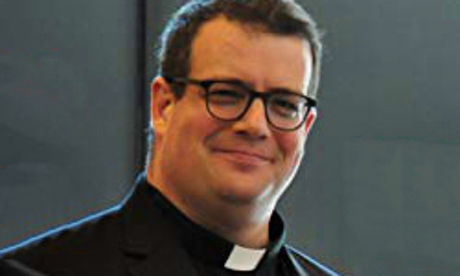Every Christian must preserve the communion of the Church; it does not mean uniformity but rather a way of living with differences.
So says Father Sylvain Brison, ecclesiologist, assistant professor at the Faculty of Theology of the Catholic Institute of Paris.
Brison unpacks the pope’s comments about schism in the Church with Anne-Bénédicte Hoffner.
Are we schismatic when we criticize the pope or when one writes to the pope about having doubts, as four cardinals did after the Synod on the Family?
In his press conference given on the plane back from Madagascar, the pope clearly reminds us that schism is an attack on the unity of God’s people, not only on their hierarchy.
One can criticize the pope and his actions: there is no single thought in the Church. Whoever says that the pope is “communist” is not strictly speaking about a schism. This includes those cardinals who have expressed their doubts to the pope, as long as they remain with him in an open dialogue.
Communion does not mean “uniformity.” As Christians, we have different ways of seeking to live the Gospel, with different charisms and gifts. Rather, communion would be a way of living our differences harmoniously.
What is a schism in Catholic theology?
The schism is a rupture of communion with the Church. This definition is both the simplest and most traditional.
The fathers of the Church, who were confronted with this problem very early on, were particularly sensitive to the ruptures of communion in the content of faith.
In their time, every schism was a heresy and every heresy was a schism. This is because the unity of the Church is based on the unity of faith and not the unity of practice. Catholics all believe the same thing but they do not all practice the same way everywhere.
So when does communion break down?
In the history of the Church, the great schisms have been ruptures of communion on questions of faith: on the Trinity, on the human and divine nature of Christ.
A schism can concern the nature of the Church, as soon as the conflict touches the deposit of faith.
Followers of [Archbishop Marcel] Lefebvre, for example, have created a schism by refusing to recognize the Second Vatican Council’s doctrinal authority and the pope’s authority over the appointment of bishops.
This was demonstrated in 1988 when Archbishop Lefebvre consecrated bishops without a papal mandate.
When are criticisms dangerous for the Church?
The problem arises when they undermine the unity of God’s people and therefore of faith.
In other words, continuously and repeatedly questioning the pope’s authority and accusing him of heresy can lead to a schism. Basically, and as the pope says, the problem is not so much criticism as the attitude behind it: is it about building unity or dividing?
Today, there are undoubtedly doctrinal, disciplinary and ideological differences between the pope and certain Catholic currents — American, German and others.
These differences are normal and we do not consider that there is a schism as soon as a group enters into resistance against the pope — otherwise there would have been many in the history of the Church! What is no longer normal is when these differences conflict to the point of threatening the unity in a front-on rejection.
Can there be ‘silent’ schisms, as the pope implied?
Some people marginalize themselves from the communion of the Church because they no longer recognize themselves in a certain form of expression of faith.
It is not an organized action against unity but, at the same time, it is an attack on communion in the Church.
The duty of the pope and also of every Christian is to preserve the unity of the faith, whatever the cost, because we believe that there is no salvation outside the communion of the Church.
A schism is therefore always a failure, on both sides.
- Anne-Bénédicte Hoffner unpacks the pope’s comments about schism with French Theologian Fr Sylvain Brison. She writes in La Croix International.
- Image: Amazon.fr

Additional reading
News category: Analysis and Comment.




